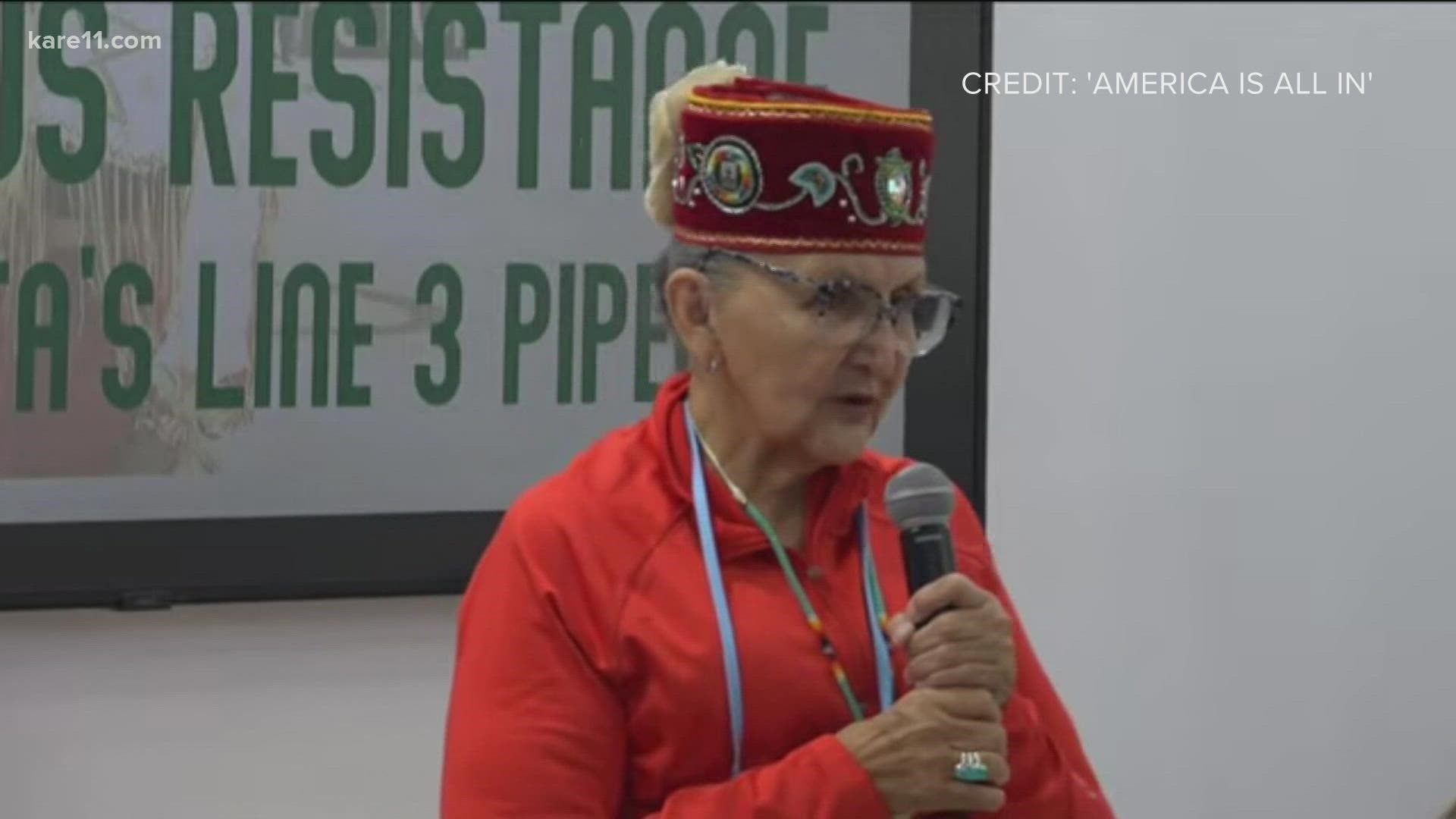GLASGOW, Scotland — The United Nations Climate Change Conference in Glasgow, Scotland will welcome a delegation from Minnesota Tuesday, which will present a panel discussion on the Enbridge Line 3 tar sands oil pipeline.
"Indigenous Led Resistance on Minnesota's Line 3 Pipeline" is the event's title, and it is hosted by Minnesotans Against Line 3.
Participants include Ashley Fairbanks with Honor the Earth from the White Earth Nation, Minnesota State Representative Frank Hornstein, Julia Nerbonne, the Executive Director of Minnesota Interfaith Power & Light, Sha Merirei Ongelungel the media coordinator for the Indian Environmental Network, Roopali Phadke, a Macalester Professor, Ellen Anderson with the Minnesota Center for Environmental Advocacy (MECA), Frank Bibeau a White Earth Nation Attorney, and Ron Turney, with the White Earth Nation who will be appearing virtually.
In their panel presentation, the group plans to draw connections between Line 3 and the ongoing climate crisis happening world wide, while focusing on the damage they claim the pipeline has caused in northern Minnesota.
You can find more information about the panel or to watch the live stream on the Honor the Earth Facebook page.
Congresswoman Betty McCollum will also be in attendance, joining a delegation lead by House Speaker Nancy Pelosi. The delegation of 21 Democrats will participate in meetings, panels and other engagements with global leaders on climate action priorities.
“Together with this outstanding, experienced and diverse delegation including Committee Chairs, Members of the House Select Committee on Climate Crisis and respected Members of Congress, I am honored to once again return to the United Nations Climate Change Conference to convey the strong commitment of the U.S. Congress in addressing this crisis and doing so in a way that puts justice and equity – particularly for indigenous communities – first,” said Speaker Pelosi in a statement on Monday.
Construction on the pipeline that starts in Alberta, Canada, and runs through North Dakota and Minnesota before ending in Superior, Wisconsin was completed the first week of October. The pipeline had been delayed by more than six years of lawsuits trying to halt work that local tribes, environmentalists and others said would violated treaty rights, worsen climate change and risk spills.
Some of the area crossed by the pipeline is land where Minnesota tribes have long-standing rights to fish, hunt and grow wild rice.
Enbridge maintains that replacing the aging pipeline, which was built in the 1960s, is the safest option for maintaining the oil supply to the Midwest and creates thousands of jobs.
The PUC first approved the Line 3 project in 2018, and again the following year after their original decision was nullified by a court ruling.

